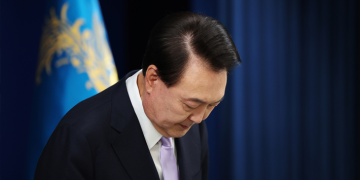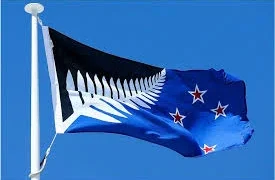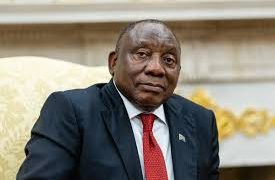The recent judgment by the High Court of Kenya on June 24, 2025, declaring the abduction and extraordinary rendition of Mazi Nnamdi Kanu, leader of the Indigenous People of Biafra (IPOB), as unlawful and unconstitutional, has reignited debates about Nigeria’s respect for the rule of law and international legal norms. The judgement which condemned the actions of the Nigerian and Kenyan governments, explicitly implicates former Attorney General of the Federation,
Abubakar Malami, as a key orchestrator of this illegal operation. This article argues that Malami’s role in Kanu’s rendition, which mirrors the infamous 1984 Umaru Dikko abduction case, warrants his debarment as a lawyer and the stripping of his Senior Advocate of Nigeria (SAN) rank for gross violations of legal ethics, professional conduct, and international law.
The Kenyan Court Judgment, A Legal and Moral Rebuke: In a historic ruling, Justice E. C. Mwita of the Kenyan High Court found that the abduction of Mazi Nnamdi Kanu in June 2021 at Jomo Kenyatta International Airport was an act of extraordinary rendition, described by
IPOB as “state-sponsored international terrorism.”
The court established that Kanu, a British citizen who entered Kenya lawfully, was abducted, tortured, detained incommunicado, and forcibly transferred to Nigeria without an extradition hearing or judicial warrant. This violated Kenya’s Constitution, the African Charter on Human and Peoples’ Rights, and international law. The court awarded Kanu 10 million Kenyan shillings (approximately ₦120 Million) in damages and condemned the
involvement of high-ranking Nigerian officials, including Malami, who served as Attorney General from 2015 to 2023.
This judgment not only exposes the lawlessness of Kanu’s rendition but
also draws striking parallels to the botched abduction of Umaru Dikko in
1984, another Nigerian government-sanctioned operation that shocked
the international community, interestingly both despicable acts of 1984 and 2021 occurred under one person- Muhammadu Buhari as military head of state and a civilian head of state. Both cases highlight a disturbing design and pattern of disregard for due process and international legal standards, with Malami’s actions in the Kanu case marking a new low in Nigeria’s legal history.
The Umaru Dikko Case As A Historical Precedent: In 1984, during Nigeria’s military regime under Major-General
Muhammadu Buhari, the government attempted to abduct Umaru Dikko,
a former Minister of Transport accused of corruption, from London. Dikko, living in exile, was drugged, placed in a crate, and nearly smuggled back to Nigeria in a diplomatic van, only to be intercepted by British authorities at Stansted Airport. The operation, involving Nigerian intelligence operatives and foreign accomplices, was condemned globally as a flagrant violation of international law and diplomatic norms.
The incident
led to a diplomatic fallout, with the United Kingdom recalling its High Commissioner from Nigeria and imposing sanctions.
The Dikko case became a textbook example of extraordinary rendition—
a state-sponsored kidnapping that bypasses legal extradition processes.
It was widely criticized for undermining Nigeria’s credibility and exposing the government’s willingness to flout international law for political ends. The key difference between the Dikko and Kanu cases is that the former was thwarted, while the latter succeeded, resulting in Kanu’s ongoing detention and trial in Nigeria under questionable legal
circumstances.
Malami’s Role in Kanu’s Rendition as A Betrayal of Legal Duty: Noteworthy is the fact that “Extraordinary Rendition” was, for the first time, brought into Nigerian jurisprudence by Aloy Ejimakor, a US-trained lawyer who was the first person to use the phrase to correct the
widespread narrative that Nnamdi Kanu was lawfully extradited. As Nigeria’s chief legal officer, Abubakar Malami was
responsible for ensuring the government’s actions complied with
domestic and international law. Instead, he allegedly masterminded an operation that mirrored the lawlessness of the Dikko abduction. According to the Kenyan court’s findings and IPOB’s statements, Kanu was abducted by Nigerian secret police in collusion with Kenyan authorities, subjected to torture, and transported to Abuja without due process.
This operation violated Nigeria’s Constitution, the Anti-Torture Act 2017, the Terrorism (Prevention and Prohibition) Act 2022, and international
treaties like the African Charter. Malami’s actions contravene the Rules of Professional Conduct for Legal
Practitioners in Nigeria, which mandate lawyers to uphold the rule of law, promote justice, and avoid conduct that discredits the profession. His role in orchestrating an illegal rendition, involving torture and human rights abuses, is a direct betrayal of these principles. Furthermore, as a Senior Advocate of Nigeria, Malami is held to an even higher standard of integrity and competence. His involvement in an operation condemned
by a competent court as unlawful brings disrepute to the SAN rank and the Nigerian legal profession.
Below is the verdict of the Kenyan court in
Case no. HCCHRPET/E359/2021 BETWEEN KINGSLEY KANU VS. ATTORNEY GENERAL OF KENYA, the High Court held that “Having considered the pleadings and arguments by parties, the decisions relied on, the Constitution and the law, I come to the following conclusions; First, the Government of Kenya violated the constitution and Mr. Nnamdi Kanu’s rights and fundamental freedoms. Having entered Kenya lawfully he was subject to the protection offered by the Constitution of Kenya 2010 and the
Government of Kenya had an obligation to uphold and protect his rights and Fundamental freedoms. Mr. Nnamdi was however abducted, kept in solitude
confinement, tortured and denied food and medication a breach of basic rights. He was chained, humiliated, ridiculed
and held in contempt and later forcibly removed from Kenya without following the law in violation of his rights and
fundamental freedoms for which the Government of Kenya is liable.”
Linking the Kanu and Dikko Cases,A Pattern of Impunity: The similarities between the Kanu and Dikko cases are striking and troubling. Both involved state-sponsored abductions of Nigerian citizens abroad, bypassing legal extradition processes. Both operations were politically motivated, targeting individuals perceived as threats to the
government—Dikko for alleged corruption and Kanu for his self determination advocacy. In both cases, Nigeria’s actions drew international condemnation, with the Dikko case straining UK-Nigeria
relations and the Kanu case prompting a Kenyan court to award damages and denounce Nigeria’s conduct. Notably, the Dikko case occurred under a military regime, where legal accountability was limited. In contrast, Kanu’s rendition took place under a democratic government, with Malami, a trained lawyer and Senior
Advocate of Nigeria, at the helm of the Ministry of Justice. This makes Malami’s actions even more egregious, as he had a professional and constitutional duty to uphold the law, not to orchestrate its violation. The recurrence of such tactics four decades after the Dikko incident suggests a persistent culture of impunity within Nigeria’s governance, with
Malami’s conduct marking a continuation of this troubling legacy.
Grounds for Debarment and Stripping of SAN Rank: The Legal Practitioners Act and the Rules of Professional Conduct provide clear grounds for disciplining a lawyer for professional misconduct.
Malami’s actions in the Kanu rendition meet several criteria for debarment and the withdrawal of his SAN rank:
- Violation of the Rule of Law: By spearheading an operation that
bypassed extradition laws and judicial oversight, Malami undermined the rule of law, a core tenet of the legal profession. The Kenyan court’s ruling confirms the illegality of the rendition, rendering Malami’s actions incompatible with his role as a lawyer. - Complicity in Human Rights Abuses: The court found that Kanu was
tortured and detained incommunicado, violations of Nigeria’s Anti-Torture Act and international human rights law. Malami’s involvement in these acts constitutes a breach of his ethical duty to protect fundamental rights. - Conduct Unbecoming of a Senior Advocate: The SAN rank is a mark of distinction reserved for lawyers of impeccable integrity. Malami’s
orchestration of an operation likened to “international terrorism” by IPOB and condemned by a foreign court tarnishes this honor and brings disrepute to the profession. - International Embarrassment: Like the Dikko case, Kanu’s rendition has damaged Nigeria’s global reputation, exposing the country to accusations of treaty violations and state-sponsored criminality. Malami’s actions have undermined public trust in Nigeria’s legal
system and its commitment to international norms. The Legal Practitioners Disciplinary Committee (LPDC) has the authority to disbar lawyers for such misconduct, while the Legal PractitionersPrivileges Committee (LPPC) can revoke the SAN rank for conduct that undermines professional integrity. Both bodies must investigate Malami’s role in the Kanu rendition.
A Call for Accountability, Learning from History: The Umaru Dikko case serves as a cautionary tale of the consequences of
state-sponsored lawlessness. While the perpetrators of that operation faced limited accountability due to the military context, Nigeria’s current democratic framework demands higher standards. Malami’s debarment and the stripping of his SAN rank would signal that no one, regardless of position, is above the law. It would also address the international outcry over Kanu’s rendition and demonstrate Nigeria’s commitment to
rectifying past wrongs. Moreover, the Kenyan judgment raises questions about the legitimacy of Kanu’s ongoing trial in Nigeria, as a prosecution founded on an illegal rendition may violate Section 3 of the Terrorism (Prevention and
Prohibition) Act 2022, which prohibits unlawful detentions. IPOB’s pledge to pursue a “global accountability campaign” against Malami and
others involved further underscores the urgency of holding him accountable domestically.
In conclusion, the Kenyan High Court’s condemnation of Mazi Nnamdi Kanu’s
extraordinary rendition, coupled with the historical precedent of the Umaru Dikko abduction, exposes a disturbing pattern of Nigerian government-sanctioned lawlessness. Former Attorney General Abubakar Malami’s alleged orchestration of Kanu’s illegal abduction, torture, and
transfer violates the ethical and legal obligations of a lawyer, tarnishes the SAN rank, and undermines Nigeria’s commitment to the rule of law. The Nigerian Bar Association and relevant disciplinary bodies must act swiftly to investigate Malami’s conduct, debar him from legal practice, and strip him of his SAN title. Only through such measures can Nigeria break the cycle of impunity, restore public trust in the legal profession, and reaffirm its adherence to international legal standards.
P.N AGAZIE Esq. a Legal Analyst and Human Rights Advocate writes from Alaigbo. grandadvocate@gmail.com









































